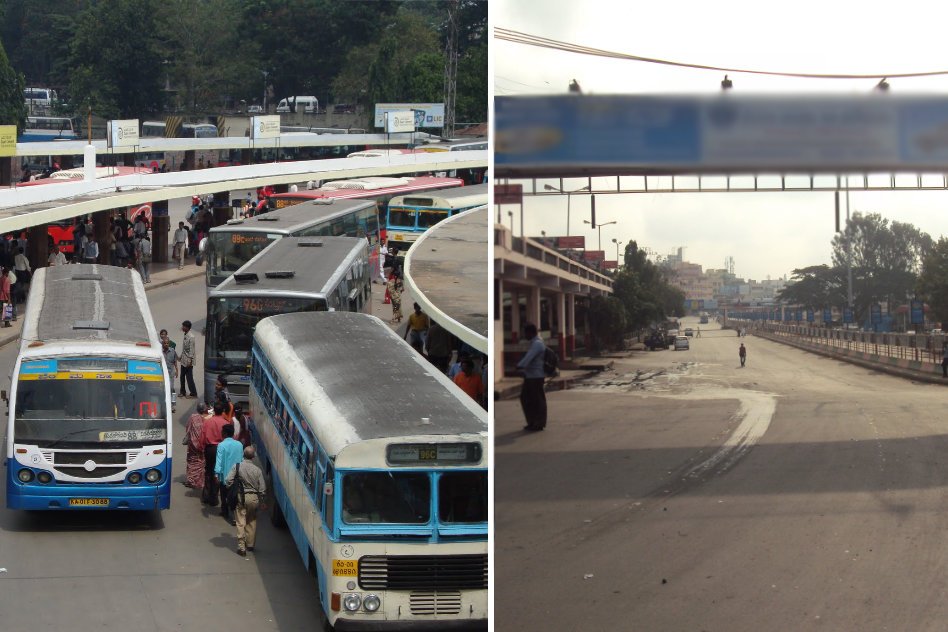
Karnataka: Know About The Strike & The Demand Of The Bus Union That Crippled Normal Life For 3 Days
28 July 2016 6:47 AM GMT
Normalcy resumed on Wednesday as employees of Karnataka State Road Transport Corporation (KSRTC) and Bangalore Metropolitan Transport Corporation (BMTC) called off their bus strike demanding a wage hike for three days. After a series of meetings between the transport corporations and government, an agreement was reached on hiking the wages of the employees to 12.5%. By 5 pm in the evening, buses started plying on Bengaluru’s roads. As part of the agreement, the government has agreed to allow employees to apply for transfers across the corporations, which was not permitted earlier.
On Sunday midnight, more than a lakh employees of the transport corporations went on strike with about 40 demands. Their primary demand was a 35% wage hike. The state government led by Chief Minister Siddaramaiah had offered a 10% hike and had threatened to invoke ESMA if the bus unions did not follow their orders and resume bus services.
What is ESMA?
[The Essential Services Maintenance Act (ESMA) was enacted in 1968, to (as its name indicates) maintain “certain essential services and the normal life of the community.” The Act includes a long list of “essential services” in its charter — ranging from post and telegraph, through railway, airport and port operations — and it prohibits the key employees in these services from striking.
ESMA gives police the right to arrest, without a warrant, anybody violating the Act’s provisions. ”Any person who commences a strike…or otherwise takes part in…any such strike shall be punishable with imprisonment for a term which may extend to six months, or with fine which may extend to two hundred rupees, or with both,” the Act reads. ”Any person who instigates…a strike which is illegal under this Act shall be punishable with imprisonment for a term which may extend to one year, or with fine which may extend to one thousand rupees, or with both.”]
Sequence of events and consequences so far
The strike affected normal life for three consecutive days as buses stayed off the roads. The public was depending on private or own vehicles, autos and cabs for commuting, schools remained closed until Wednesday. Many universities had to postpone their examinations and several colleges took classes via social media. Rs 17 crore a day’s revenue loss had been incurred by the unavailability of buses.
Bengaluru Metro came to the rescue by increasing the frequency of train services. Meanwhile, stone pelting on buses were reported from different parts of the state like Hassan, Ramanagara, Belagavi, Shivamogga, Koppal and Chikkamagaluru.
According to the reports of Deccan Herald, “All the employees of the four state-run transport corporations are ready to go to jail in case the government decides to invoke the ESMA,” said HV Anantha Subbarao, General Secretary, KSRTC Staff, and Workers Federation. The strike had severely affected day-to-day normal life. The impasse between the bus unions and the government needs to be resolved as early as possible, or else it will continue to hamper the common people. Now, calling off the strike has brought a huge relief to more than 25 lakh people in the state, who use government buses daily.
 All section
All section













